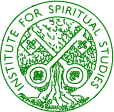
|
|
Ralph Vaughan Williams |
A seminar presented by Michael Leighton Jones on September 9, 2008Michael Leighton Jones, singer, composer, and present musical director at Trinity College Chapel, gave a seminar on the composer Ralph Vaughan Williams to the Institute for Spiritual Studies on September 9th, 2008. Michael gave a series of examples to illustrate Vaughan William's eccentricities. One of these was the fact that he spent decades trying to complete his opera, which he called a 'morality', based on Bunyan's Pilgrim's Progress. He described him as being a synthesiser, innovator and one who reinvented himself, culminating in his being 'a grand old man of British music' in his 'triumphal end'. As early as 1904 he was the editor of the English Hymnal, to which he contributed various unascribed works. Born in 1872, Ralph Vaughan Williams began writing music at five. He was related to Wedgwood and Darwin. Having received a broad education, he had wide interests like the rest of his family. He lowered his age to enlist in the First World War; during that War he lost various friends, including the promising composer George Butterworth. Michael mentioned a long series of musical influences, including D.F. Gladstone, C.H.H. Parry, Charles Wood, C.V. Stanford, Max Bruch, Maurice Ravel, Gustav Holst, and Gerald Finzi, a musical protegee. He was also influenced by folk song, of which he was a collector. To discount many critics' views of his being 'quintessentially English', Michael noted the composer's remark that "you should first be local, before trying to be universal." Vaughan Willims was an atheist, or at least an agnostic, yet he wrote 'spiritual' music. He used psalms, religious texts, John Bunyan, George Herbert, Thomas Tallis, and Geoffrey Chaucer as inspirations. Douglas Lilburn, a New Zealand-born pupil, then composer, may have claimed that Vaughan Williams was "too nice to be a good teacher", but he was an effortless musician, for all that. His late flowering can be seen by the fact that he wrote his last four symphonies (6 to 9) in his seventies and eighties. He wrote altogether nine symphonies and five operas, as well as film music, ballets, stage music, song cycles, church music, and works for chorus and orchestra. In noting the strong folk music interest, many people do not always recognise him as rich and simple, yet a classical and romantic nationalist. Just listening to Bushes and Briars, the audience's responses to this beautiful, simple song were reverential, thoughtful, with pauses; the music is technically adroit yet introspective. Michael emphasised that in Vaughan Williams's music we hear the historic speech of English, the inflections and the moods of time and place. Michael noted how important the composer's work as a hymnal reviser, ensuring congregations could sing hymns in keys they could approach confidently. He rearranged tunes and often incorporated them in his compositions. Above all, Ralph Vaughan Williams remains, in Michael's view, a man of comparisons and contrasts. He was an agnostic and yet worked closely with the church. He wrote both secular and sacred music equally well. He used original themes that were interchangeable with folk tunes. Job, his masque for dancing, was a homage to William Blake. Pilgrim's Progress for the composer was a 'morality', not an opera. Symphony No. 2 was 'a symphony by a Londoner'. Symphony No. 4 was angry in places, while the Fifth was 'assured and radiant'. Vaughan Williams used a soprano in his Pastoral Symphony and in his Symphony Antarctica to denote 'barrenness, otherworldliness, and desolation'. He used unusual solo instruments like a harmonica and a tuba, and a melodion in his 8th Symphony. Ralph Vaughan Williams died in 1958, fifty years ago this year. Michael said many people don't know his music now. He recommended listening to the conductor Bryden Thomson's version of the symphonies.
This site is hosted by St Peter's Eastern Hill,
Melbourne, Australia. |